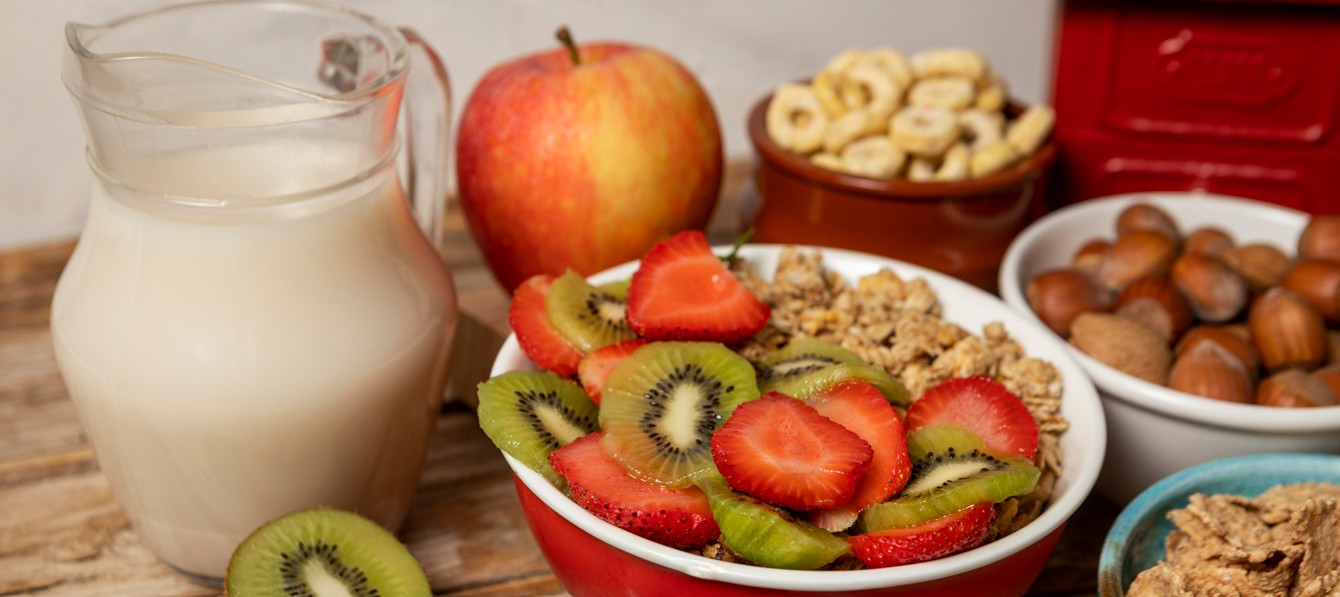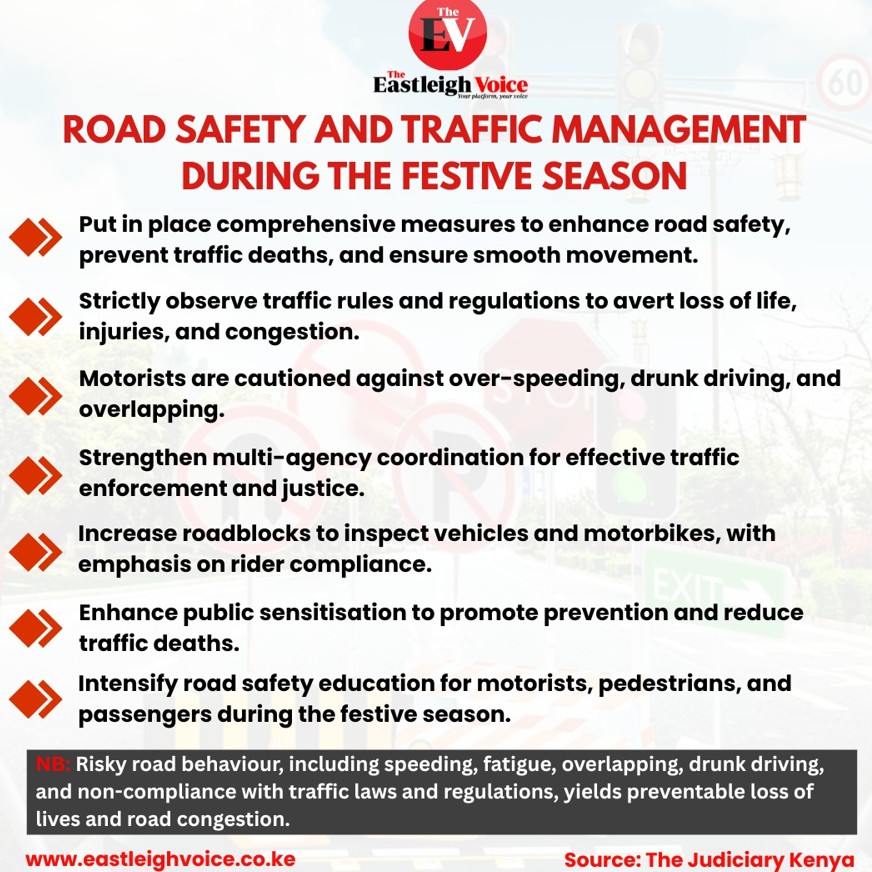From fibre overload to sugary yoghurts: Hidden diet mistakes fuelling gut health problems

While fibre is generally recommended for digestion, Dr Berg warns that too much of it can irritate an already inflamed gut.
Gut health is receiving growing attention, but not every wellness trend is actually beneficial.
"Eat this...for better gut health, eat that, do this..." advice is everywhere.
More To Read
Health educator Dr Eric Berg has outlined eight common habits that can harm digestive health, especially when the gut is inflamed, irritated, or recovering from stress.
“Many people think they are doing their gut a favour by loading up on fibre or taking probiotic supplements, yet these habits can make symptoms worse if applied indiscriminately,” Dr Berg told his audience in a recent post.
This article examines these habits, the science behind them, and practical ways Kenyan residents can support gut healing.
1. Excessive fibre intake
While fibre is generally recommended for digestion, Dr Berg warns that too much of it can irritate an already inflamed gut. Gas, bloating, and discomfort are common, especially for people with existing digestive problems.
He suggests temporarily reducing fibre intake—such as through a carnivore-style diet—which limits fermentation and gives the gut lining time to heal.
Dr Berg also recommends nutrients like glutamine, found in foods such as beef, chicken, eggs, dairy, spinach, and broccoli. He adds that zinc carnosine, or zinc obtained naturally from red meat, poultry, shellfish, eggs, nuts, and whole grains, may help speed up gut lining repair.
Supporting research: A 2024 study from Weill Cornell Medicine found that some high-fibre prebiotics, including inulin, may provoke inflammation in susceptible individuals, emphasising the need for personalised nutrition.
2. Commercial probiotics and sugary yoghurts
Dr Berg cautions against relying on over-the-counter probiotics or low-fat, sweetened yoghurts.
“Most supplements contain too few live microbes to meaningfully impact your gut flora,” he explains.
“Probiotics aren’t always harmless. For some people, especially those with an inflamed gut, taking probiotics can trigger bloating, gas, or digestive discomfort. The wrong bacterial strains, or poor-quality supplements, can upset your natural microbiome, delay recovery after antibiotics, and in rare cases, cause infections in vulnerable individuals. They are not a one-size-fits-all solution.”
Their effectiveness depends on factors such as gut condition, strain type, dosage, and timing.
In conditions like small intestinal bacterial overgrowth (SIBO), probiotics may worsen bloating by increasing gas production.
Instead, Dr Berg recommends plain grass-fed yoghurt, kefir, or home-prepared Lactobacillus reuteri yoghurt, which may support digestion, reduce harmful microbes, and even boost oxytocin to help manage stress.
3. Colon cleanses and detox diets
Popular detoxes and colon cleanses often strip away beneficial bacteria, leading to constipation and irritation. Dr Berg stresses that true detoxification occurs in the liver.
Eating nutrient-dense foods—such as leafy greens, liver-supporting vegetables, and healthy fats—supports natural detoxification without disrupting the gut.
4. Overuse of antibiotics
Antibiotics destroy harmful bacteria but also wipe out beneficial gut microbes.
Dr Berg warns that frequent or unnecessary use may permanently alter the microbiome, affecting digestion and immunity.
Current research shows that gut microbiota may take months or even years to recover after antibiotic use—and in some cases, may never return to their original balance.
“After a course of antibiotics, restore your gut by consuming high-quality probiotics, fermented foods like kefir or sauerkraut, and nutrient-dense protein sources. Avoid processed foods and sugar during this period to give your microbiome the best chance to rebalance.”
5. Over-reliance on antacids
According to Dr Berg, acid reflux is often caused by low stomach acid rather than excess. Regular antacid use may worsen digestive issues by impairing protein breakdown and reducing mineral absorption.
In some cases, betaine HCl supplements—under professional guidance—may help restore healthy stomach acid levels.
He further recommends foods rich in glutamine, including beef, chicken, eggs, dairy, spinach, broccoli, and legumes, along with zinc-rich foods such as red meat, poultry, seafood, eggs, nuts, and whole grains.
For added gut support, he suggests drinking kefir, sauerkraut juice, bone broth, and soothing herbal teas to provide natural probiotics, reduce inflammation, and promote healing.
6. Low-fat diets
Dietary fat triggers bile release, which is essential for digestion and nutrient absorption. Very low-fat diets may slow digestion, reduce vitamin uptake, and disrupt gut bacteria. Healthy fats from eggs, avocado, nuts, and grass-fed butter help maintain digestive balance.
7. Misguided “balanced diets”
“Many so-called balanced diets are high in refined carbohydrates, which can feed harmful gut bacteria, causing bloating and discomfort,” Dr Berg says.
He advises reducing refined carbs and sugars while focusing on whole, minimally processed foods.
8. Superfood shakes
Although green smoothies are often promoted as gut-friendly, Dr Berg warns that high-fibre smoothies can worsen symptoms in people with inflamed digestive systems.
Nutrient-dense, low-fibre foods—such as red meat or eggs—may be better during recovery, offering essential nutrients without overloading the gut.
Supporting gut healing
Dr Berg’s recommendations for restoring gut health include intermittent fasting to give the gut time to rest, longer fasting periods for deeper digestive recovery, prioritising sleep and stress management, and getting sunlight exposure to boost vitamin D and regulate melatonin.
He also encourages eating fermented foods like sauerkraut juice or kefir for natural probiotics.
He emphasises that gut problems rarely stem from a lack of probiotics or fibre alone.
“The key is addressing irritation, low stomach acid, and frequent eating patterns,” he says.
Nairobi’s fast-paced urban lifestyle—with long commutes, late-night meals, and heavy reliance on processed foods—can worsen gut symptoms.
Local experts encourage gradual dietary changes, mindful meal timing, and greater use of locally available fermented foods, such as maziwa lala or fermented vegetables, to support gut recovery.
Top Stories Today












































